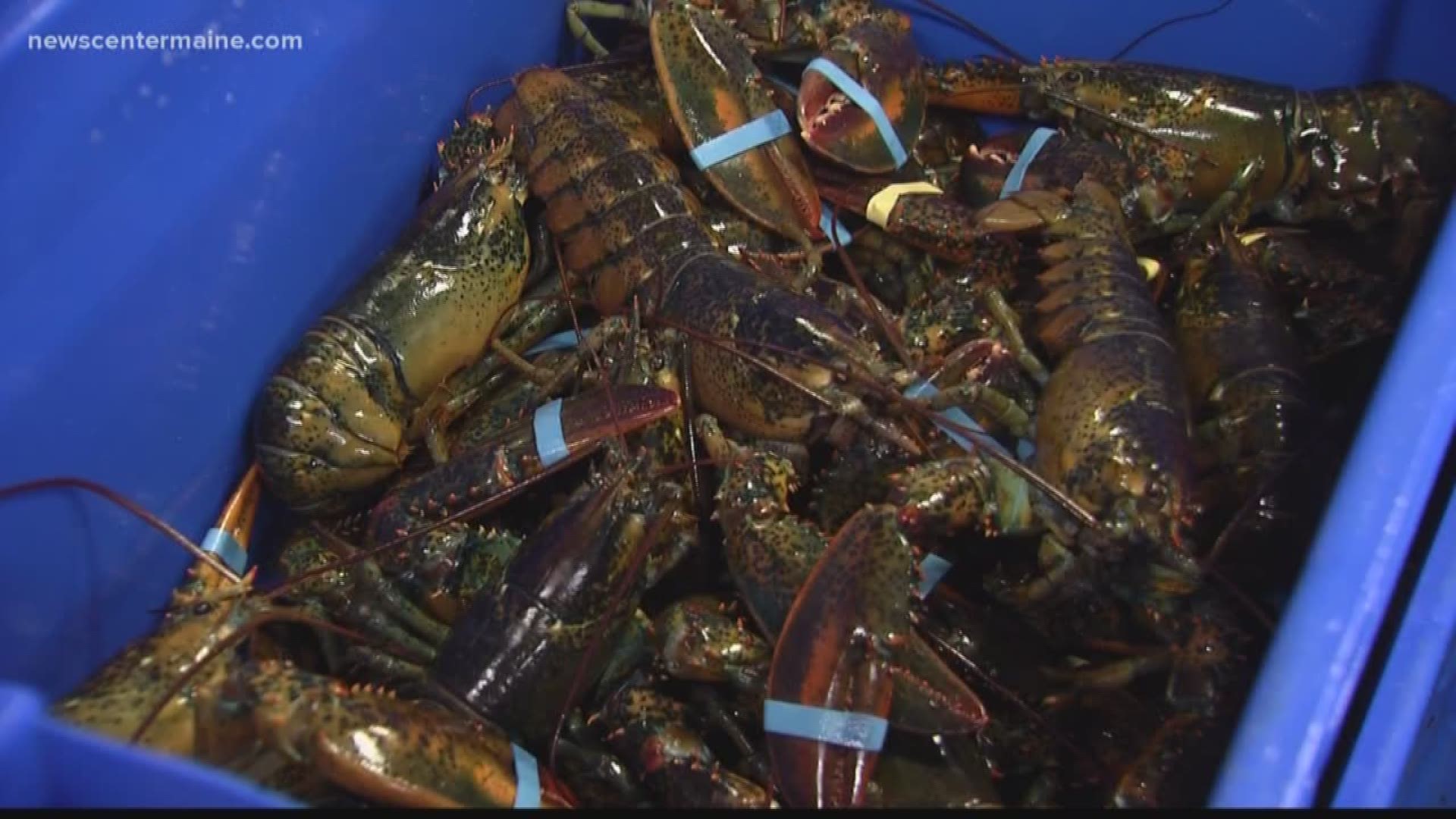In an escalating trade war with China, an American crustacean is caught in the crosshairs.
Lobster has landed on the list of American goods now facing a 25-percent tariff from the Chinese government.
"It's a very big deal for my company," said Stephanie Nadeau, the owner of the Lobster Company in Arundel, Maine. She said 70 percent of her lobster exports go to Asian markets. Now, she worries she can't compete with Canadian lobster.
"The Canadian lobsters look the same, act the same, but now cost 25-percent less," she said.
The new tariffs are retaliation against the United States for imposing a 25-percent tariff on certain Chinese goods.
"The tariffs are not great news for our industry," said Matt Jacobson, Executive Director of the Maine Lobster Marketing Collaborative. "China is a market we have invested in and we hope a solution can be found."
China has become an important export market for Maine lobster in the last decade. An emerging middle class in China can now afford the luxury item, and it has become a popular dish for the Chinese New Year celebrations every winter.
"What used to be a traditional slow time in Maine lobster business, January, February and March, is actually the busiest time of year in China," said Nadeau. "It has enabled me to employ more people on a year-round basis."
Nadeau said if Chinese customers buy less American lobster due to the new tariffs, there could be an excess of lobster supply. That would drive prices down, and jeopardize Maine jobs.
Maine's Congressional delegation saw this coming. Senators Collins and King, and Representatives Pingree and Poliquin held a summit with US Trade Representatives two weeks ago, and told them that they feared retaliatory tariffs from China would put Maine's lobster industry in a pinch.
In a statement, the Congressional delegation says it will reach out to the USTR again, outlining concerns with these latest Chinese tariffs. They go into effect July 6.

